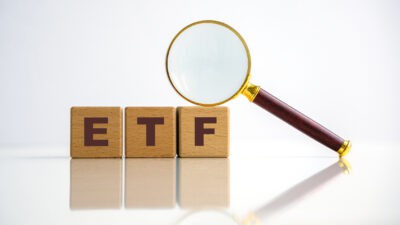The Vanguard Australian Shares Index ETF (ASX: VAS) is the most popular exchange-traded fund (ETF) on the ASX. As of 30 June 2024, it was $15.3 billion in size.
The VAS ETF enables investors to buy a basket of S&P/ASX 200 Index (ASX: XJO) shares for a very low fee of 0.07% per annum. The ASX 200 index includes 200 of the largest businesses on the ASX.
It gives plenty of exposure to big names like BHP Group Ltd (ASX: BHP), Commonwealth Bank of Australia (ASX: CBA), CSL Ltd (ASX: CSL), National Australia Bank Ltd (ASX: NAB), Westpac Banking Corp (ASX: WBC) and ANZ Group Holdings Ltd (ASX: ANZ).
Some investors may think the Vanguard Australian Shares Index ETF has too much exposure to ASX bank and mining shares — those sectors account for just over half of the portfolio.
With that in mind, some Aussies may be interested in investing in businesses listed in different countries that are focused on industries different from the VAS ETF. Below are two high-quality ideas, in my eyes.
Betashares India Quality ETF (ASX: IIND)
India is the world's biggest democracy, it has one of the largest economies, and it continues to grow. A recent Australian government report had this to say:
India has enjoyed a step up in growth rates over the past few decades supported by reform efforts and the expansion of its aspirational, consumer class. This report assumes a growth rate of 6-8 per cent annually over the next two decades, underpinned by productivity improvements.
That's a strong tailwind for the large Indian businesses. The IIND ETF only invests in the highest-quality Indian companies based on a quality score, so these companies can hopefully capitalise on the available opportunities.
In terms of sector allocation, the ETF includes five industries with a weighting of at least 10%: financials (21.5%), consumer discretionary (16.8%), industrials (14.3%), IT (13.3%) and consumer staples (12.2%).
The portfolio includes 30 businesses. The biggest holdings, with a weighting of more than 4%, are Infosys, Axis Bank, Tata Consultancy Services, Icici Bank, Kotak Mahindra Bank, Hindustan Unilever, and HDFC Bank.
Past performance is not a reliable indicator of future performance, but the IIND ETF has delivered an average annual return of 10.7% since its inception in August 2019. Over the five years to June 2024, the S&P/ASX 300 Index (ASX: XKO) — which the VAS ETF tracks — has returned an average annual return of 7.2%.
Betashares Global Quality Leaders ETF (ASX: QLTY)
I think it's a good idea to improve the quality of our portfolios through exposure to some of the global leaders.
This ASX ETF invests in businesses that rank well on four factors: return on equity (ROE), debt-to-capital, earnings stability, and the ability to generate cash flow.
Combining those factors can lead to businesses with very strong foundations. At the moment, some of the QLTY ETF's biggest positions are Adobe, Accenture, Roche, UnitedHealth and Intuit. However, these positions are only between 2.1% and 2.4% in size, so there's no concentration risk in the portfolio of 150 names.
Perhaps unsurprisingly, the QLTY ETF has delivered a very good return – in the past five years, it has returned an average of 14.2% per annum.









